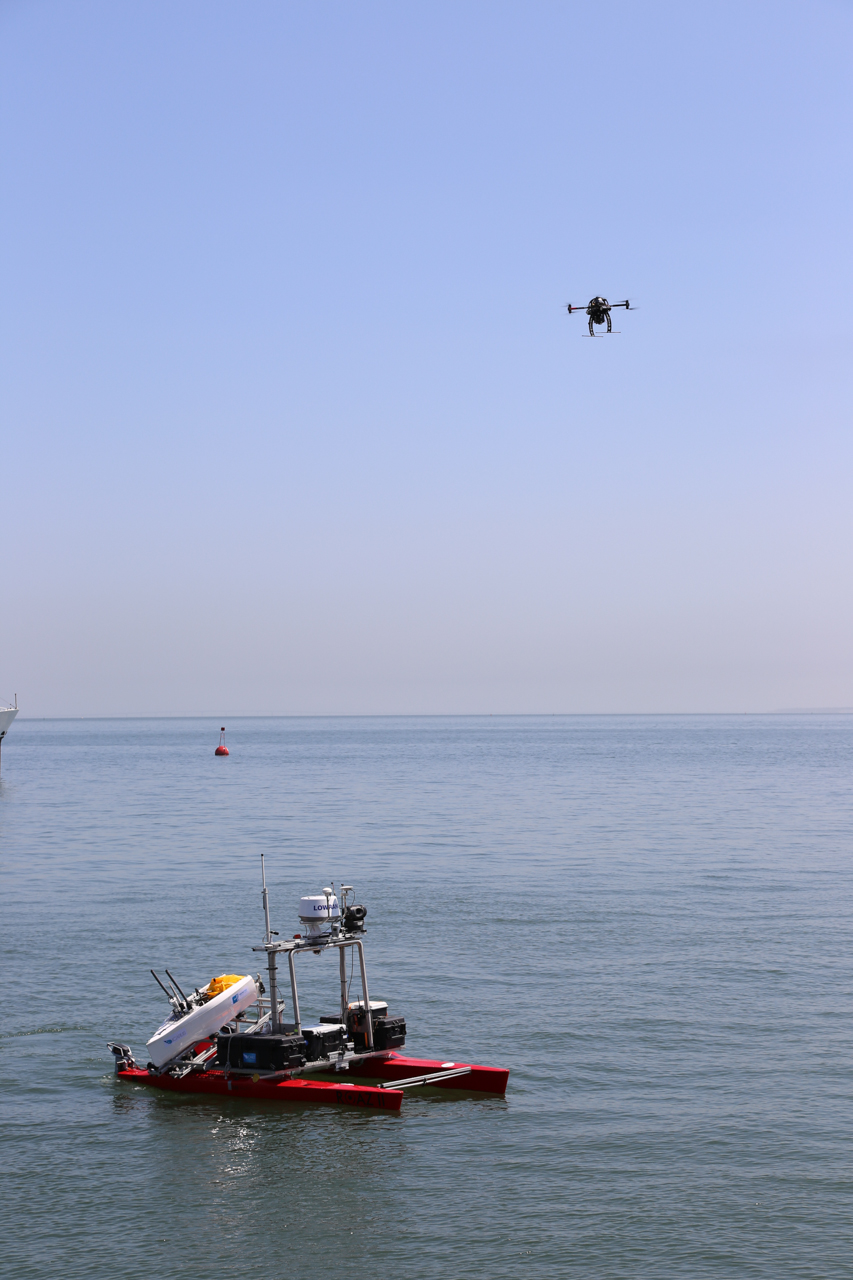Project ICARUS demonstrated in search and rescue operations
On 9 and 10 July, the robots developed as part of project ICARUS were presented at the ICARUS Sea Trials Lisbon 2015, which took place at the Base Naval de Alfeite (Naval Base of Alfeite, Portugal). INESC TEC’s Centre for Robotics and Intelligent Systems (CROB) is leading the maritime component, as a result of their experience in aquatic robotics.
28th July 2015
ICARUS – Integrated Components for Assisted Rescue and Unmanned Search Operations – is a European project that brings together 24 partners from 9 countries – Portugal, Spain, France, Germany, Belgium, Switzerland, Italy, Austria, Poland –, which had a 17 million Euro budget. The project started in February 2012, and will be concluded in January 2016.


The goal is to develop robotic tools that will help search and rescue teams, both on land and at sea. These robots are innovative because they can be used in crisis scenarios, such as natural disasters.
“Let us imagine that a vessel runs aground or sinks offshore, but the conditions of the sea and the weather do not allow the search and rescue teams to get to the victims safely. In a situation such as this, a solution would be using autonomous robots that can help these teams”, explains Aníbal Matos, researcher at INESC TEC, professor FEUP, and one of the people in charge of the ICARUS Sea Trials Lisbon 2015.
According to the researcher, the equipment does not replace search and rescue operators, but works as a complementary aid instrument.
“These robotic tools are equipped with sensors that can detect humans and communicate with the outside”, he concludes.

Coordinated by the Belgian Military Academy, project ICARUS involves 24 partners from nine European countries – INESC TEC, ESCOLA NAVAL, ESRI PORTUGAL - SISTEMAS E INFORMACAO GEOGRAFICA SA (Portugal), SPACE APPLICATIONS SERVICES NV, SPACETEC PARTNERS SPRL, BELGIAN FIRST AID AND SUPPORT TEAM (Belgium), ECOLE POLITECHNIQUE FEDERALE DE LAUSANNE, Eidgenössische Technische Hochschule Zürich, UNIVERSITE DE NEUCHATEL, Skybotix AG (Switzerland), ESTUDIOS GIS S.L., Aerospace Technology Centre (ASCAMM Foundation), INTEGRASYS, S.A., QUOBIS NETWORKS SL, ATOS SPAIN SA (Spain), METALLIANCE SA, JMDTHEQUE SARL (France), The Fraunhofer Institute for Reliability and Microintegration IZM, TECHNISCHE UNIVERSITAET KAISERSLAUTERN (Germany), CALZONI SRL, NATO Centre for Maritime Research and Experimentation (Italy), INSTYTUT MASZYN MATEMATYCZNYCH (Poland) and TECHNISCHE UNIVERSITAET WIEN (Austria).
ICARUS is funded by the EU’s 7th Framework Programme (FP7/2007-2013), as part of funding contract No. 285417 (European Commission, FP7 Security Programme).
The INESC TEC researcher mentioned in this article is associated with the following partner institution: UP-FEUP.


